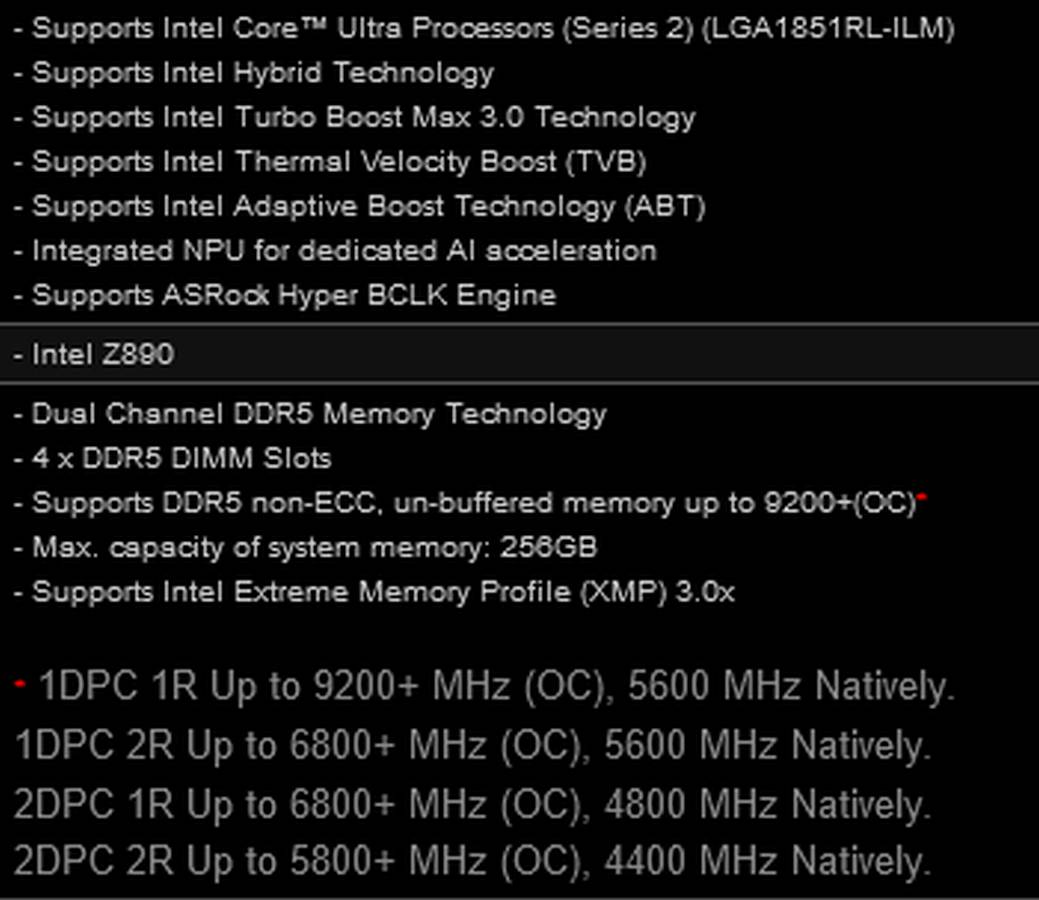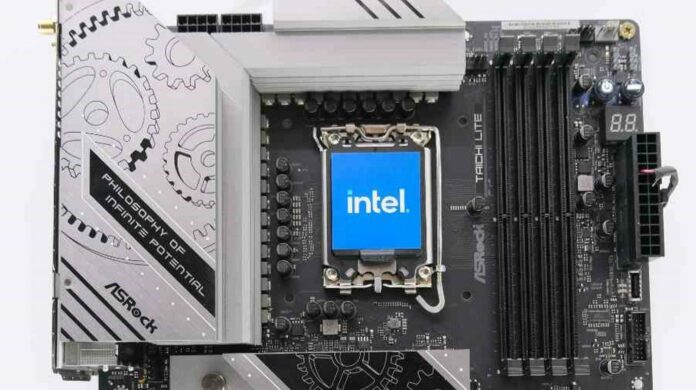ASRock has reached new heights for DDR5 frequency support with its latest Z890 motherboard. The new, as-yet-unnamed board is rated for up to 9,200MT/s, though at the cost of less total capacity.
Spotted by @momomo_us, the mysterious ASRock board lists up to 9,200MT/s DDR5 support. Depending on the model, this could mean a 2,000MT/s increase over current Z790 boards. A great generational boost, if easily attained.
It is important to note this speed is only possible using one single-rank module per DIMM channel. This in turn limits the total RAM capacity you can install on your machine. As a reminder, the latter can reach up to 256GB on modern four-slot platforms. Nevertheless, this is not a big deal for the majority of users, since most only populate two DIMMs anyway.
Also, note this frequency is considered overclocking as Intel rates its CPUs for 5,600MT/s by default. In other words, the Team Blue doesn’t guarantee your chip’s memory controller can handle this speed. From my point of view, this is understandable seeing how many problems unstable RAM can cause. I experience this first-hand with my AMD Ryzen system which randomly crashes games when pushing RAM slightly above 6,000MT/s.

Coincidentally, V-Color has just recently announced the world’s first CUDIMM DDR5 running at the same 9,200MT/s speed. Short for Clocked Unbuffered Dual Inline Memory Module, the RAM can dynamically adjust clock frequency and voltage based on workload and system conditions. The result is faster data transmission, lower power consumption, and enhanced stability, according to V-Color. This leads us to think that you may need such memory modules to reach ASRock’s advertised speed, as well as a CPU with a high-frequency memory controller.
We should get more information regarding all of this next month, as Intel plans to launch its latest Core Ultra 200K processors alongside compatible motherboards. So, stay tuned.

